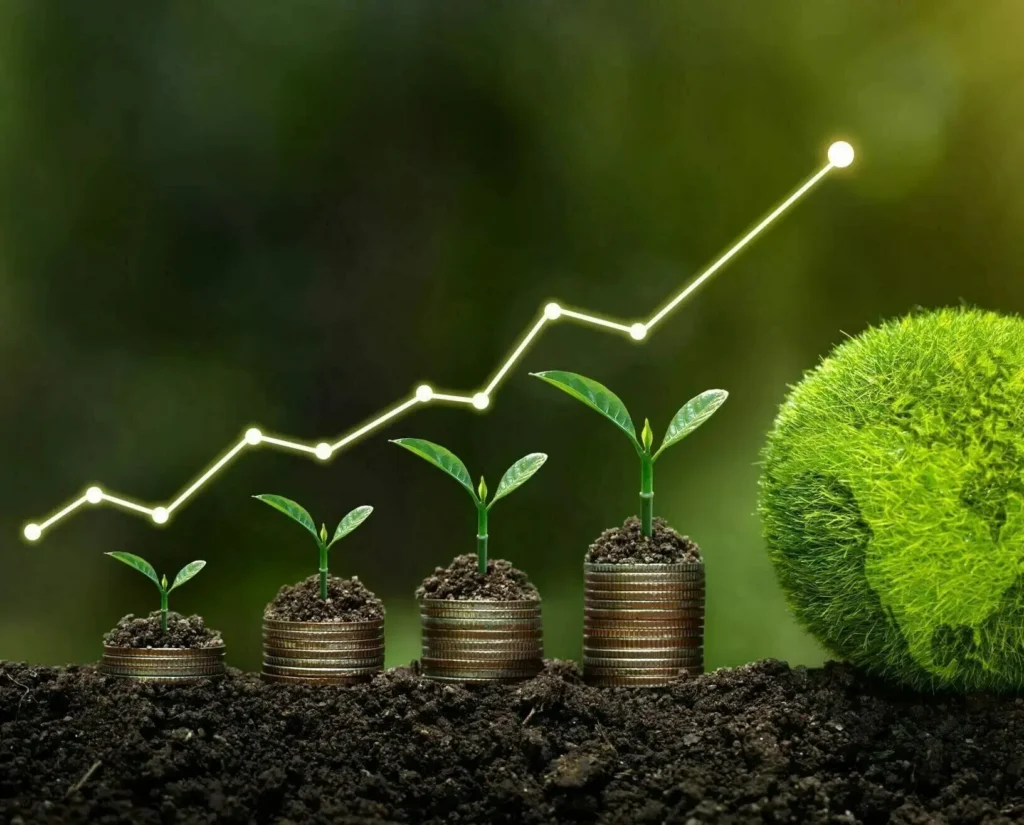In the ever-evolving landscape of Sustainable business, the fusion of innovation and sustainability emerges as the beacon guiding us toward robust economic growth. Delving into sectors like luxury and technology, where pioneers like LVMH’s Parfums Christian Dior and Spout Ventures redefine norms, we witness a paradigm shift. Their commitment to organic practices, regenerative approaches, and collaborative efforts symbolizes the essence of reimagining.
As we stand at the precipice of change, rewriting competition laws and harnessing technological advancements, the path to sustainable innovation becomes clearer. It’s not just about profitability but about reshaping industries, hacking systems, and embracing holistic strategies for a future where economic growth harmonizes with social and environmental well-being.
Table of Contents
Key Points
Luxury Industry’s Sustainable Innovation: Luxury brands like Parfums Christian Dior are integrating sustainability into their products and practices, sourcing over 80% of ingredients from natural origins and transitioning to organic and regenerative farming methods. This exemplifies how even historically traditional industries can innovate sustainably.
Reimagining Business Practices: The concept of “Reimagining Way” emphasizes practical implementation steps, behavioral change, and collaboration beyond conventional ideation. With competition laws evolving, there’s an opportunity for sectors to collaborate and drive sustainable innovation at scale.
Game-Changing Innovations: Examples like Spout Ventures’ atmospheric water generator showcase how innovative solutions can address pressing challenges like water scarcity. Such innovations have the potential to revolutionize industries by tackling blind spots and offering sustainable alternatives.
Hacking the System for Sustainability: To accelerate sustainable innovation, businesses need to challenge conventional norms and hack existing systems. This involves optimizing efficiencies and sustainability practices through technological advancements and collaborative efforts, thus sustainably driving economic growth.
Holistic and Creative Strategies: Achieving sustainable economic growth requires holistic strategies that address social, economic, and environmental aspects. By integrating sustainable innovations into existing systems on a large scale, businesses can break free from traditional norms and drive positive outcomes for society and nature.
In today’s rapidly evolving business landscape, the fusion of innovation and sustainability stands as the beacon guiding us toward sustainable economic growth. As we delve into this paradigm shift, let’s examine how industries like luxury and technology are pioneering this transformation, and explore the potential for collaborative efforts to drive widespread change.
The Power of Sustainable Luxury
Luxury, often perceived as traditional and static, has quietly embraced innovation to sustain its growth trajectory. Beyond its rich history, luxury brands are now leveraging sustainability as a cornerstone for continued success. Take, for instance, Parfums Christian Dior, a subsidiary of LVMH, which has prioritized nature-positive outcomes by sourcing over 80% of its ingredients from natural origins. Recognizing the fragility of floral species, Dior is transitioning its gardens worldwide to organic and regenerative farming practices, aiming to enhance biodiversity and restore carbon levels in the soil. This commitment to sustainability extends to upskilling its workforce and fostering a culture where every individual contributes to a sustainable future.
Fostering Innovation for Sustainability
Innovation, when coupled with sustainability, transcends mere ideation to tangible value creation across various domains. Spout Ventures exemplifies this synergy with its innovative countertop atmospheric water generator, addressing water scarcity issues in agriculture and hospitality. Inspired by personal experiences during California’s drought, founder Reuben Vollmer developed a device capable of extracting potable water from air humidity, showcasing how entrepreneurial spirit can drive impactful solutions to pressing challenges.
Collaboration: A Catalyst for Change
Historically, competition laws have hindered cross-sector collaboration, but recent shifts in antitrust regulations present an opportune moment for collective action. Collaboration not only accelerates innovation but also reduces costs, making sustainable practices more accessible across industries. By fostering a culture of collaboration, businesses can harness collective expertise to reimagine existing systems and drive sustainable economic growth on a large scale.
Breaking Free from Business-as-Usual
To unlock the full potential of sustainable innovation, businesses must challenge conventional norms and embrace holistic strategies that address social, economic, and environmental dimensions. By hacking existing systems and optimizing efficiencies, businesses can enhance their societal and nature-positive outcomes while maintaining profitability. This departure from business-as-usual norms offers an unprecedented opportunity to redefine economic growth through sustainable innovation.
Conclusion
In conclusion, sustainable economic growth hinges on the symbiotic relationship between innovation and sustainability. By embracing sustainability as a driver of innovation and fostering collaboration across sectors, businesses can pave the way for a future where economic prosperity is intricately linked with environmental and social responsibility.
Read More Articles
- Navigating the Financial Landscape of Executive Education and MBA Programs
- Understanding Information Technology: The Backbone of Modern Business
- Understanding Algorithms: Definition, Functionality, and Real-Life Applications
- Understanding Machine Learning: A Comprehensive Exploration
- Unlocking the Power of Machine Vision: Revolutionizing Industries
- Unlocking the Power of Expert Systems: Enhancing Decision-Making with AI
- Unlocking the Power of Natural Language Processing
- Unlocking the Secrets of Artificial Intelligence
- Optimizing Logistics with AI: Revolutionizing Efficiency in Package Routing


